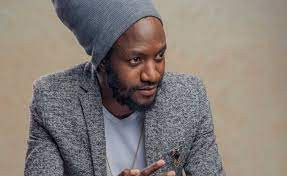
Noam Chomsky, an American professor and public intellectual known for his work in linguistics, political activism, and social criticism. once said: “The role of intellectuals is to challenge authority, not to serve it.”
According to the English Oxford dictionary, an intellectual is: “a person with ability to think and to understand ideas and information”.
At the moment, the world is poised with multiple conflicts; Sudan, Israel, Gaza, Russia, Ukraine, Cambodia, Thailand, Rwanda and DRC, among others.
How are intellectuals among musicians assisting in solving these world problems? How can we help the people of Gaza to deal with their malnutrition and hunger problems?
Bob Geldof aka Robert Frederick Zenon Geldof, an Irish singer-songwriter aged 74, and political activist is widely recognised for his activism, especially his anti-poverty efforts concerning Africa since the 1970’s. He is back again strongly criticising Benjamin Netanyahu , the Israeli prime minister for the genocide taking place in Gaza. He is an intellectual.
Are there such intellectuals among musicians who are perceived to challenge authority in Zimbabwe?
First of all, let us look at Thomas Mapfumo, the pioneer of Chimurenga music who, aged 80 years now and is retiring this year, at a Birmingham, U.K. concert, on 23 August, has been a powerful voice for social and political change in Zimbabwe through his music.
His music, since the 1970s became the sound track of Zimbabwe’s liberation struggle and during post independence era. became a challenge to authority resulting in his going into exile, leaving the country for fear of reprisals. His music with song titles such as Corruption, Pfumvu Pa Ruzevha, Pidigori and Mamvemve gave voice to the oppressed and also celebrated the cultural identity of the people. Many people I interviewed said that it is important for intelligent musicians to speak up politically as they carry the voices of many voiceless people. So Mukanya is considered to have done a good job.
- Manchester City win Premier League title on astonishing final day of season
- Pogba tipped to join Spanish giants
- Lobby group bemoans impact of graft on women
- Erik ten Hag: Manchester United appoint Ajax boss as club’s new manager
Keep Reading
Another Zimbbwean who in considered to be an intellectual among the country’s musicians is Leonard “Karikoga” Zhakata. He, is best known for his hits Hupenyu Mutoro, Batai Mazwi and Gomba Remarara. However, it was his 1994 smash hit Mugove, from the album Maruva Enyika, which evaded government censorship and propelled him to national stardom.
In 1994 at the age of 26, he became the youngest Zimbabwean musician to sell more than 100,000 copies of an album, when his solo album Maruva Enyika sold more than 120,000 copies.
In 2006, Zhakata spoke out about the government and asked for the radio waves to be freed to allow Zimbabweans to operate radio stations. Some of his music was blacklisted by the government and banned on state radio due to perceived political statements..
Zhakata is considered to be a brave intellectual and he speaks out the thoughts of many people. This is one reason his album sold so many copies, At some point conflict with the government arose .
I was a DJ on Radio 3 when the album Maruva Enyika came out. In the studio at Pockets Hill was a big notice placed on the wall by the then head,of the station, Ishmael Kadungure. It read: “Ännouncers are not allowed to play on air the following politically sensitive songs. There was a list of five songs one of which was Mugove by Leonard Zhakata. M Among the five songs on the list was Corruption by Thomas Mapfumo and I Iater discussed this matter with Peter Johns and John Matinde and argued that different views from different artistes must be given a chance. Let the public decide. Both Peter and John agreed with me but they also said that we should comply with the rules. My programme at the time was strictly reggae. I would have defied the rules and played it if it was a reggae track just like I did with John Chibadura’s Zuva Rekufa Kwangu. Zhakata’s song was an excellent track. Despite this censorship, Mugove sold thousands of copies as it resonated with the people of Zimbabwe.
Many years later, another intellectual has emerged in Zimbabwe..Wallace Chirumiko (pictured), also known as “Winky D,” is a celebrated reggae-dancehall artist who in January 2023, released an album that contains lyrics against social and political injustice, corruption, and the economic meltdown in Zimbabwe.
Zimbabwe authorities were not pleased with this release by Winky D. He faced harassment, and threats for peacefully expressing his views despite the constitution allowing people freedom of expression. The song Ibotso which cries out loud about the misuse of national resources by elites rattled the ruling Zanu PF party, leading to calls from the Economic Empowerment Group (two of whose members, Mike Chimombe and Moses Mpofu are in custody accused of fraud) to ban his music from air play and public platforms.
In Chitungwiza, Winky D introduced material from his recently released Eureka Eureka album which contained the song Ibotso. Some of the songs he sang did not go down well with the authorities and the police were ordered to shut down the show.“Shutting down Winky D’s Chitungwiza show in 2023 sent a message that Zimbabwe’s authorities are willing to harass even the most popular performers for what they say.
Zimbabwe’s music scenes have long been vibrant arenas for cultural expression, but they are increasingly becoming battlegrounds for freedom of speech.
Eureka Eureka became a flashpoint in Winky D’s ongoing conflict with authorities. The album includes songs, which critique the misuse of national resources by elites. This album rattled the ruling Zanu PF party, leading to calls from the Economic Empowerment Group (EEG), a pro-government lobbying organisation, to ban his music from air play and public platforms.
The backlash escalated on March 4, 2023, when police stormed Winky D’s performance at Chitungwiza Aquatic Complex.
It looks like the real owners of this country will only entertain artistes who are pro-governmnet such as Jah Prayzah who sang Mudhara Achauya and Kutonga Kwaro just like the way many employers entertain obedient workers. One has no freedom of choice. If a person goes astray, the owners of this country who spent millions of dollors lobbying for your vote during elections, are ready to deal with you. They are big. They own you. They own the flag and they have the judges in their backpockets. They do not want a country full of critical thinking people. This is one reason when critical thinking intellectuals emerge among musicians, they are harassed.
In my opinion, it is important for intelligent musicians (Intellectuals) to speak out politically as they carry the voices of many just like what Noam Chomsky said.
*Feedback: frezindi@gmail.com










